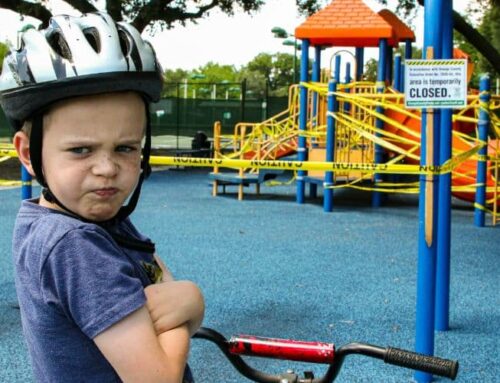Internet safety for our kids was a parental concern long before the pandemic took hold in 2020 and left so many of our students staring at screens for hours at a time. Ever since we learned to plug up a desktop or log on to a laptop, parents have known that online dangers are all too real.
Then, once our kids started carrying palm-sized supercomputers neatly disguised as mobile phones, our search for cyber safety only intensified. Instead of staying under our roof, the internet left the house with our kids each day, as did the potential for trouble.
With advances in technology moving at warp speed, it’s all a parent can do to keep up with the basics. But there are some steps we can take to encourage digital awareness and promote internet safety for our kids. A great first step is never forgetting what’s at stake.
Dangers Lurking Online
The dark side of the digital world is nothing new. The cast of usual suspects has remained relatively stable over time, even if their methods have taken new forms. They can still be broken down into two general categories: personal and digital.
On the personal side, children and teenagers are still susceptible to online predators and cyber bullies who are intent on taking advantage of them. Internet pornography and other inappropriate content can worm their way into a child’s world. And internet addictions still have the power to disrupt relationships and leave kids wasting time on virtual worlds instead of connecting with real people in the real world.
On the digital side, phishing scams promise great things but produce frustration. After all, faceless criminals aren’t worried about the age of their victims. Plus, because kids and teens are now more adept at being online and buying things, they also run a greater risk of falling victim to identity theft than ever before. Again, the bad guys aren’t checking birth certificates.
So, those are some of the enemies that parents face when trying to protect their kids online. Now, let’s check out some weapons to help you in that fight.
Tips for Keeping Kids Safe Online
Unfortunately, experts have yet to invent a magic pill that guarantees internet safety for kids. That’s why online awareness and digital protection remain a primary responsibility for parents. Of course, that requires balancing trust with proper education. It also means following through on consequences when things go in the wrong direction.
Before you jump in, though, think about your children. You already know that one size never fits all because every kid is different—even if they live under the same roof. Some just naturally feel a stronger draw toward temptation than others. And protecting teenagers online is a completely different ballgame than promoting cyber safety among younger children. Knowing your kids’ strengths and weaknesses is a big deal. And regardless of how your child is wired, you can start by applying a few best practices.
- Communicate. As with so many other parenting issues, open dialogue with your children about internet safety is vital. Remember, these need to be conversations, not lectures or ultimatums. Together, talk about dangers lurking online and work through practical ideas for digital protection. You might even consider putting things in writing.
- Set reasonable limits. While it’s great to let your child have input, the steps your family takes toward internet safety are ultimately your call. Start by setting up some basic parental controls offered through filters and blocks. You can also set time limits for computer or phone use each day. If necessary, collect your child’s phone when they go to bed. As you consider what rules to enforce, remember to be age-appropriate and to explain the reasons behind the rules. Your kid may not appreciate the limits, but they will probably respond better if they know the “why” behind them.
- Define non-negotiables. These would include anything that puts your child in danger or has the potential to hurt someone else. The primary items on this list would be things like sharing personal information (including passwords and photos) or cyberbullying. While you’re at it, remind your child that things never really go away once they are posted online, especially on social media. They can always turn up again—and could keep showing up for years to come. Of course, if one of the non-negotiables is violated, the consequences need to be steeper.
- Model safe internet use. Let’s face it: the same temptations that plague our children online can trap us as well. So, practice what you preach by following your own rules. And implement some additional safeguards, like keeping your computers in a common area where everyone can see what’s going on. It’s a small step, but it could make a big difference in helping your child understand internet safety.
Centuries ago, King Solomon, the wisest man who ever lived, challenged his readers to guard their hearts (Proverbs 4:23). In ancient Jewish culture, that meant protecting your mind along with your emotions. Solomon understood that the fight for our hearts and minds was the key to a healthy and satisfying life.
Protecting your children from online dangers is a part of that battle. So, do whatever it takes to fight hard—and to win. It’s worth the struggle.
The Knowledge of Evil is Everywhere Online.
Protecting your children from online dangers is a part of that battle. So, do whatever it takes to fight hard—and to win. It’s worth the struggle.












